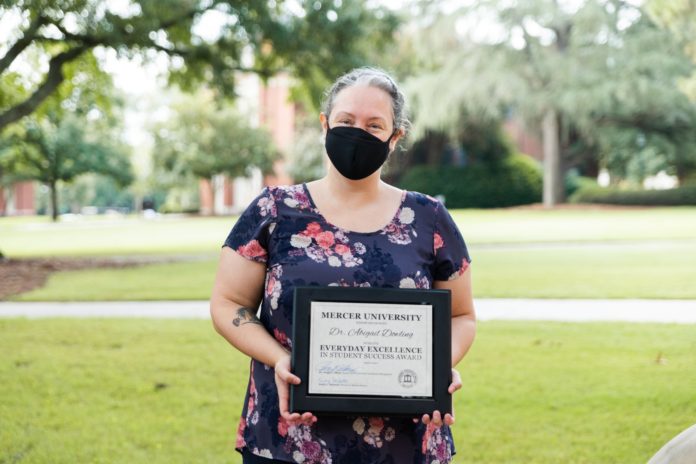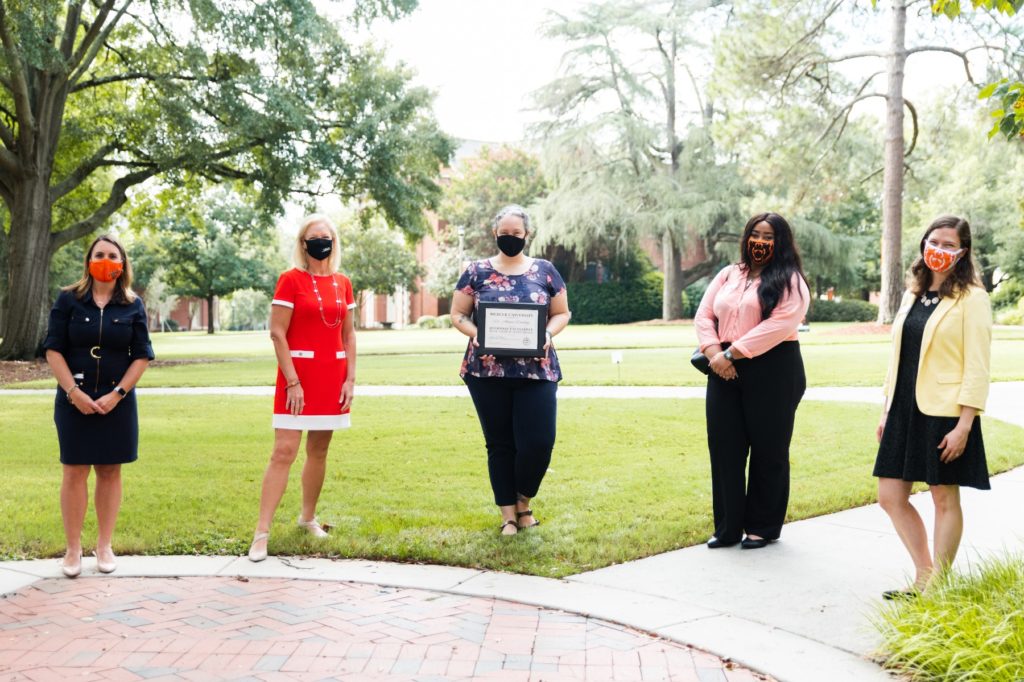
Dr. Abigail Dowling’s history classes thrive on discussion, so when courses suddenly moved online in the spring due to the COVID-19 pandemic, she knew she had to do something.
Using Canvas, Mercer University’s learning management platform, the assistant professor of history created online discussion boards and hoped for the best.
The results stunned her. Not only were students engaging in the discussion, but more of them were participating, and they were having deeper conversations than they did in person.
“I was blown away by the response,” she said. “The students were active on the boards in a way that I had not seen previously.”
To further encourage student engagement, Dr. Dowling provided positive reinforcement to students using the “kudos” feature of Starfish, a web-based student retention platform managed by the Office for Student Success.
“When I noticed students who were making a particularly interesting comment on the board, I used the kudos feature to say, ‘Hey, I see you are making an effort to stay engaged in the course even though everything is wild around us,’” she said.
For this, she was awarded the Everyday Excellence in Student Success Award, which recognizes innovative work by faculty and staff to better serve students. The Office for Student Success in Mercer’s Enrollment Management Division surprised Dr. Dowling with the award on Sept. 14 in Phi Beta Kappa Plaza.
“The feedback that you gave students last semester, it really did stand out,” Emily Halstead, director of student success, told Dr. Dowling in presenting the award. “Nobody else did exactly what you did in giving kudos.
“It doesn’t take a lot to do, but it’s something that is very replicable that others can implement in their classes, and so we really appreciate the fact you took the step of doing that.”
Abdul Kaimari, a sophomore majoring in neuroscience, was in Dr. Dowling’s Western Histories class during the pivot to online.
While nothing can replicate the social aspect of in-person discussion, in some ways, the online boards were better, he said.
“I think through the discussion board, everyone got a chance to talk,” he said. “While in class, not everyone had a chance because of the crunch for time.”
On the discussion boards, “everyone shared their perspective, and everyone was heard,” he said.
The online boards worked so well in the spring that Dr. Dowling implemented them in her fall classes as well. Even though classes meet in person, face-to-face group discussions are challenging due to social distancing requirements and other COVID-19 protocols, she said.
“I’m seeing so many students active on the discussion board that I don’t see active in class,” she said. “Especially with masks, I’m getting maybe four students to talk in class. Normally, I’d see 12-15.”
Students may engage more on a discussion board because they’ve grown up using text as a form of communication, Dr. Dowling said. The boards also give students who may be less likely to speak in class a chance to measure their words and feel comfortable about what they’re saying before they respond, she said.
Along with providing face-to-face instruction, professors stream their classes online for students who may not be able to attend in person for many reasons, including having permanent accommodations or isolating due to COVID-19.
To make sure those students’ voices are heard, when someone logs in to the classroom remotely, Dr. Dowling asks for an in-person student to volunteer as a “chat advocate.”
“The chat advocate goes on the general Microsoft Teams board, and their task is to embody the voice of anyone remote,” she said. “It’s a way of helping to bring that person into the classroom, by giving the person an actual voice and making sure they don’t get left out.”
For Dr. Dowling, fostering engagement is the most important thing she can do in the classroom.
“If students are not engaged, they’re not learning,” she said. “The content can be the best, but unless I am engaging them, the content doesn’t really matter.”










